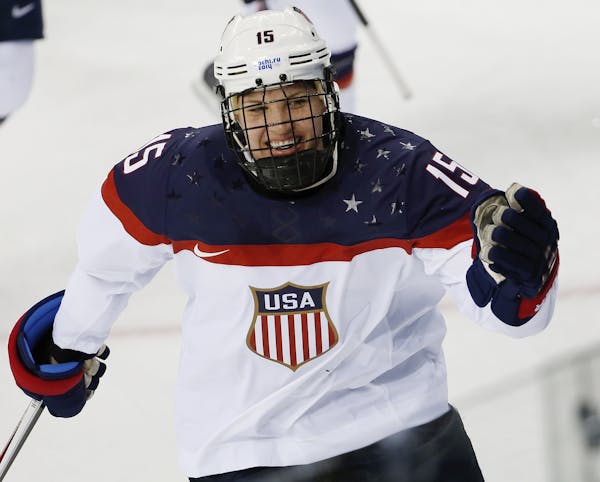SOCHI, RUSSIA – Every time a Russian figure skater has stepped onto the ice at the Sochi Olympics, the partisans at Iceberg Skating Palace have shown how loud they can be. Thursday, one of the most raucous venues at the Winter Games fell completely silent when their greatest idol winced in pain after a warmup jump.
Evgeni Plushenko clutched his aching back and skated to the boards to confer with coach Alexei Mishin. In those few moments of quiet, he could no longer ignore the message. "I think God is telling me, 'Evgeni, enough with skating,' " he said. "Of course, I am disappointed. I tried my best."
After four Olympic medals, 12 surgeries and a 17-year reign that made him one of Russia's favorite celebrities, Plushenko, 31, waved to the crowd and called it a career. He withdrew from the Olympic men's competition when he realized his injured back would not allow him to complete Thursday's short program. He plans to skate in some ice shows after a period of rest and rehabilitation, but the sparkling performance that helped Russia to the team gold on Sunday will stand as his official farewell to competition.
Through the rest of the night, skater after skater offered tributes to an athlete they said inspired and moved them. While Plushenko lost his chance to become the most decorated Olympic figure skater in history, several others put on a show that restored the roar to the Iceberg.
Yuzuru Hanyu of Japan, a rising star at 19, broke his own record for the highest score ever awarded for a men's short program with a 101.45 that put him atop the standings. Canada's Patrick Chan, the world champion, is second with 97.52, and Javier Fernandez of Spain stands third with 86.98. Jason Brown, the top American, skated a soulful program to a Prince song and is in sixth place with 86.00 points.
Plushenko said he fell on a quad toe loop in training Wednesday and felt pain in his back. He took medication and tried to skate several times through the day, but he could not jump. Still, he was not ready to admit defeat until trying two jumps in the pre- competition warmup and hurting so badly he could not feel his legs.
"I tried till the end," Plushenko said. "I almost cried. It's hard, believe me. This is not how I wanted to end my career."
Over the course of four Olympics, Plushenko earned two gold medals — in the men's competition at the 2006 Turin Games and in the team competition in Sochi — and silvers in 2002 and 2010. He also generated the occasional controversy, and this week was no different.
He has been dealing with back and knee injuries for the past several years and had surgery 13 months ago to repair a herniated disc. Russia's men have fared poorly in international competition during Plushenko's absence, earning the right to enter only one skater in the Olympics. Plushenko lost to 18-year-old Maxim Kovtun at Russia's national championships in December, but Plushenko was given the lone Olympic berth after performing privately for Russian skating officials.
There was much speculation Thursday about whether Plushenko should have withdrawn after the team event. Had he done so, Russia could have substituted another skater. But Mishin said that would not have been "fair play," insisting that Plushenko felt he would be healthy enough to skate.
Hanyu revived the crowd's spirits with a masterful program, breaking his previous short-program record by 1.61 points. In Thursday's free skate, he could become the first skater from Japan to win the Olympic men's title. "I was very nervous and my legs were shaking," he said. "I was very, very surprised by the score. I'm over the moon."
U.S. champion Jeremy Abbott crashed hard on his opening jump, hitting the ice on his side and skidding into the boards. He was momentarily stunned, but he rose and finished his program.
Abbott, whose score of 72.58 put him in 15th place, said he hesitated "for a millisecond" just before takeoff on a quad toe loop. "I was very confused and in a lot of pain," he said. "When I stood up, I heard the crowd screaming for me, and I knew I had to finish."
Plushenko got the screams, too, but not the triumphant finish. Mishin urged people to remember his longtime pupil fondly.
"This is not a tragedy, what happened with Evgeni," Mishin said. "I was working with him 20 years. Mostly, we had good success. Mostly, he was a winner."
Rivalries on tap with Barcelona-Chelsea and Lyon-PSG in Women's Champions League semifinals

